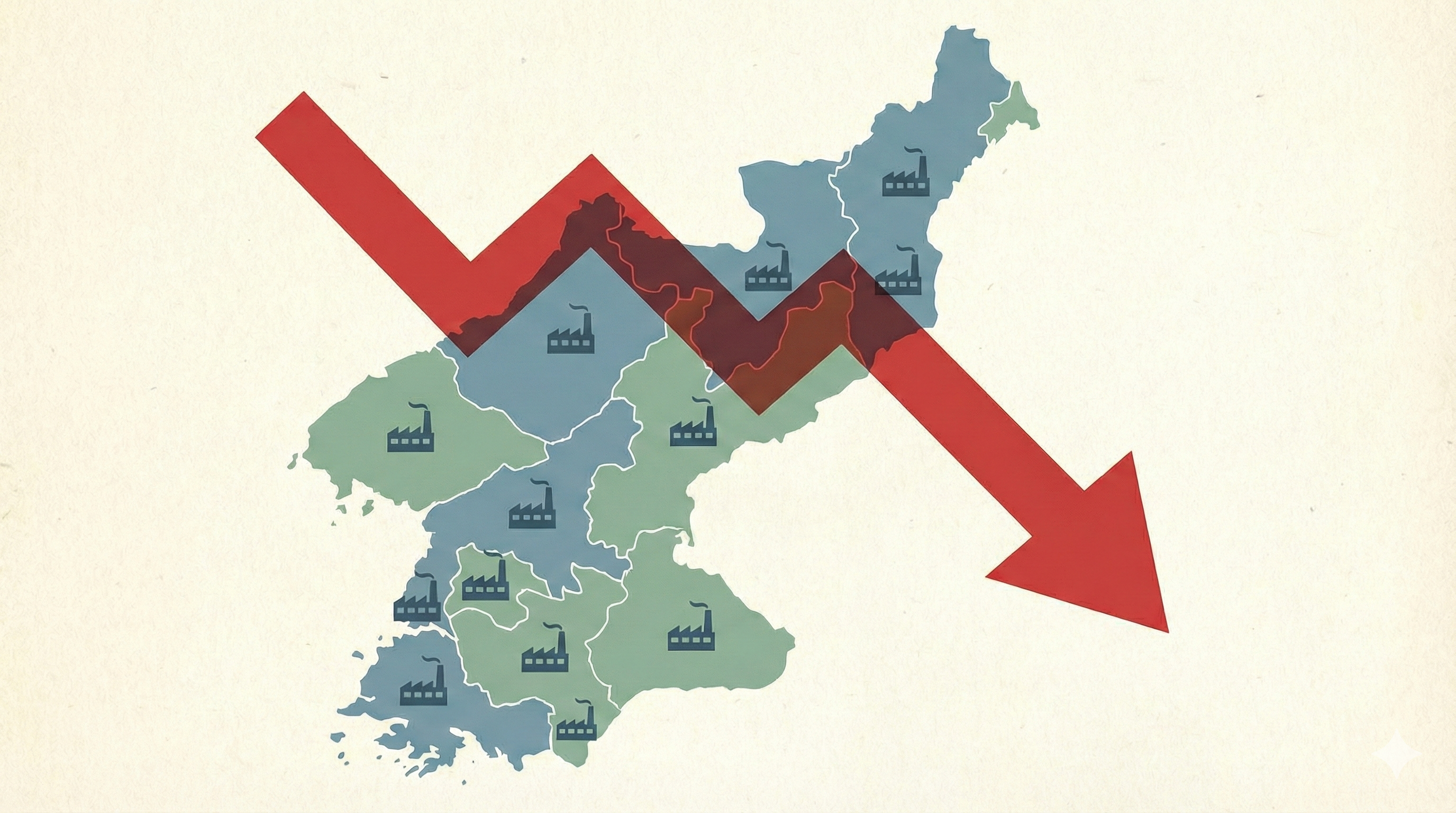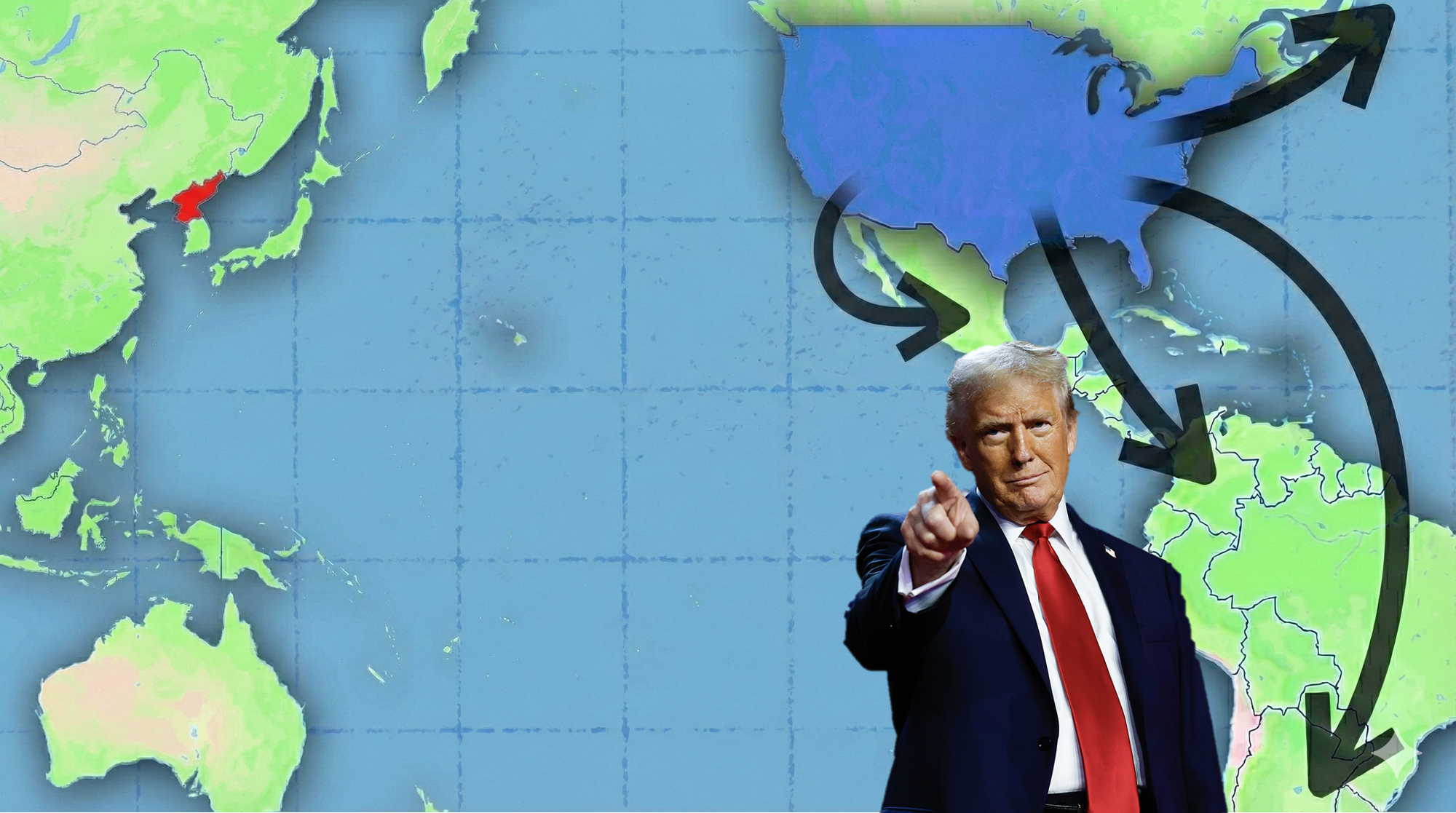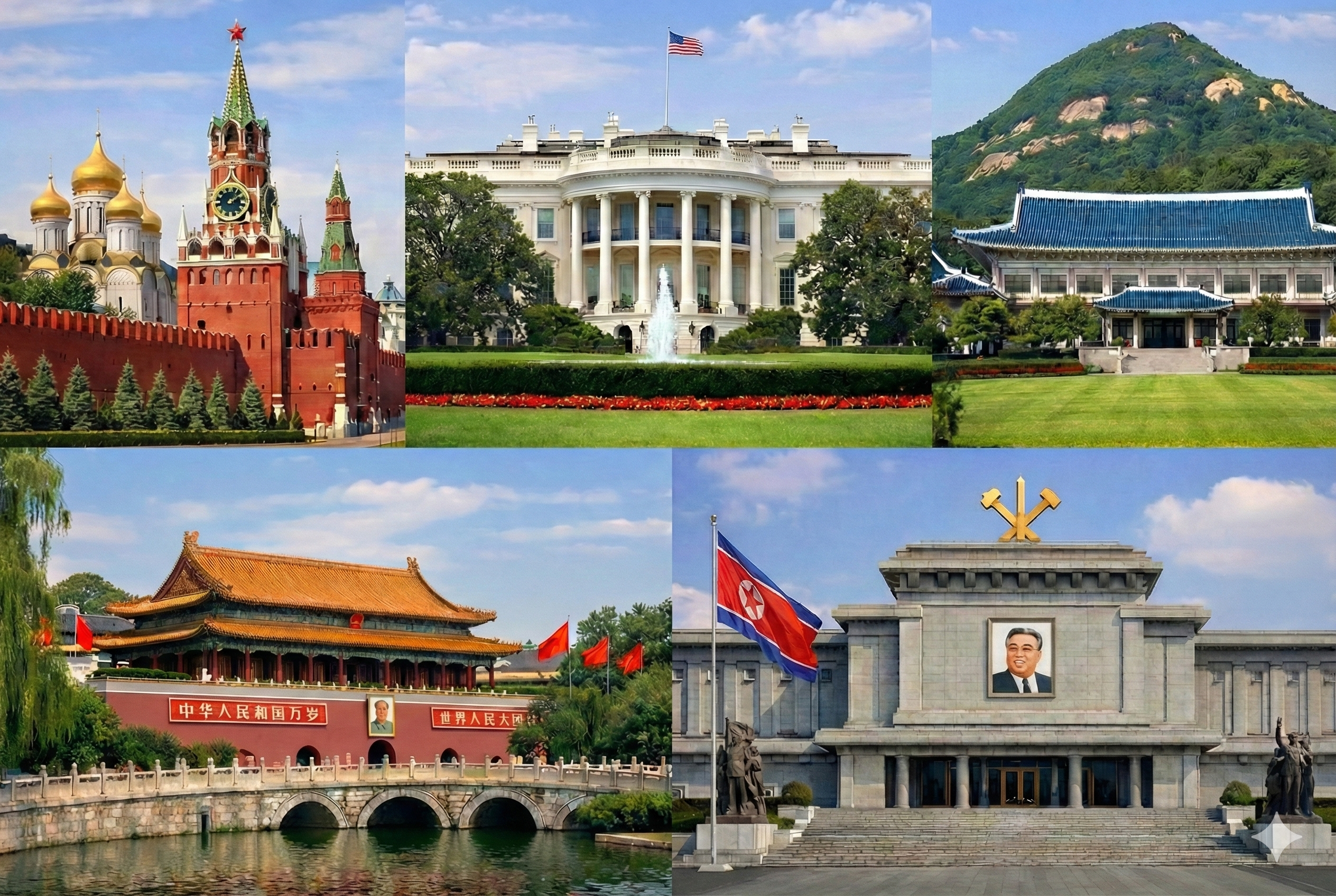I. President Trump’s Approach to North Korea Summits
Since Donald Trump’s inauguration, there has been considerable speculation about the possibility of another summit between the United States and North Korea. President Trump has expressed a clear willingness to engage in dialogue with North Korea and has shown a positive attitude toward his personal relationship with Kim Jong Un. Given Trump’s tendency to implement unconventional policies under the banner of “America First,” it is entirely plausible that unexpected developments may occur in U.S.-North Korea relations.
In his inaugural address, President Trump emphasized conflict resolution and peace, hinting at the possibility of pursuing negotiations and reconciliation with North Korea. He stated, “My proudest legacy will be that of a peacemaker and unifier. That’s what I want to be: a peacemaker and a unifier. ... We will measure our success not only by the battles we win but also by the wars that we end — and perhaps most importantly, the wars we never get into (Trump 2025).” This suggests that he might present a diplomatic breakthrough with North Korea, reducing the nuclear threat to the U.S. mainland, as a major accomplishment of his foreign policy.
Domestically, President Trump could leverage a summit with North Korea to bolster his political standing. However, the overarching strategy of the Trump administration regarding North Korea remains unclear. Both Trump and Secretary of Defense Hegseth have referred to North Korea as a “nuclear power.” Although this does not signify formal recognition of North Korea as a legitimate nuclear-weapon state under the Nuclear Non-Proliferation Treaty(NPT), it does reflect an acknowledgment of North Korea’s actual possession of nuclear weapons capable of threatening the United States.
Given this context, a critical question arises: will the United States continue to pursue denuclearization by treating North Korea as an illegal nuclear-weapon state, or will it adjust its approach to align with U.S. interests by treating North Korea similarly to Israel, India, and Pakistan?
Should North Korea be placed in the same category as these nations, the U.S. might adopt a double standard in managing its relationship with North Korea to serve its national interests. For instance, the 2006 U.S.-India Civil Nuclear Agreement reversed long-standing sanctions against India and reoriented U.S. policy to align with its strategic interests. This precedent suggests that the U.S. might employ a similar approach when dealing with North Korea in the future.
II. North Korea’s Perspective and Strategy
From North Korea’s perspective, a proposal by President Trump for a U.S.-North Korea summit would inevitably involve a range of complex considerations. North Korea’s top priorities in negotiations with Trump would be gaining recognition as a legitimate nuclear-weapon state and securing the removal of all economic sanctions, while preserving and advancing its existing nuclear weapons and missile capabilities.
North Korea initially viewed the U.S.-North Korea summits during Trump’s first term as laying the groundwork for improved bilateral relations. However, the collapse of the Hanoi summit in 2019 stalled further negotiations. As a result, North Korea has emphasized the need for negotiations with the United States as a whole, rather than relying solely on personal agreements between leaders. North Korea seeks recognition as a legitimate nuclear state as part of the U.S. national strategy, aiming to normalize bilateral relations and strengthen its military capabilities to achieve these goals.
During the 8th Party Central Committee’s 11th plenary session late last year, North Korea declared its “strongest response strategy against the U.S. for the sake of national interest and security,” signaling that its negotiations with the U.S. would involve significant preconditions. Against the backdrop of a so-called New Cold War or a multipolar international system, North Korea is likely to pursue the following strategies: bolstering its international position, strengthening ties with China and Russia, maintaining the “hostile two-state relation” toward South Korea, and preparing for an intense inter-Korean strategic competition. To accomplish these objectives, North Korea will likely consider the following key conditions.
First, the level of North Korea’s military capabilities is a critical factor. North Korea has been striving to develop nuclear missile capabilities capable of striking the U.S. mainland, partly through technological transfers from Russia. However, the certainty of such transfers remains questionable. Even if North Korea attains a first-strike capability, its lack of a credible second-strike capability limits its ability to achieve mutual assured destruction (MAD) with the U.S. Having judged previous efforts to secure safety guarantees through cooperation with South Korea and the U.S. as failures, North Korea is pursuing a strategy of self-reliance through military strength.
Consequently, North Korea is likely to use negotiations as an opportunity to further develop its military capabilities while avoiding arms control agreements that could limit its arsenal. Achieving a credible second-strike capability would require significant time and resources, making prolonged and challenging negotiations highly probable. Whether President Trump would recognize North Korea’s nuclear-weapon state status and its right to advance its military capabilities remains uncertain. Kim Jong Un is expected to closely monitor Trump’s domestic and international standing, seeking opportune moments for negotiation. Kim is likely to believe that military demonstrations, particularly showcasing weapons capable of targeting the U.S., are an effective means of exerting pressure. Given the multitude of foreign policy challenges facing a potential second Trump administration, ranging from the Ukraine war to Middle East conflicts to the U.S.-China strategic competition, North Korea may undertake various provocations in order to elevate the priority of its nuclear issue.
Secondly, the Russia-North Korea relationship is expected to play a significant role in shaping North Korea’s strategy toward the United States. North Korea is pursuing a strategic objective of rebuilding a Cold War type of strategic partnership with Russia through a military alliance. However, only after the Ukraine war ends will it be possible to determine whether the Russia-North Korea relationship has been solidified as a strategic partnership within the new international system. President Trump has announced his intention to end the Ukraine war immediately upon taking office, although he has mentioned a six-month timeline afterwards. If the Ukraine war concludes, Russia would inevitably focus on post-war recovery and normalizing foreign relations. In such a case, Russia, weakened by its wartime economy, may lack the economic capacity to support North Korea.
As North Korea enters the final year of its five-year economic plan, it finds itself at a critical juncture. If Russia cannot provide sufficient economic assistance, the momentum for Russia-North Korea cooperation will inevitably weaken. Given domestic frustrations and discontent in North Korea over troop deployments to Russia, a lack of visible economic support from Moscow could further fuel dissatisfaction over such deployments.
The question of whether Russia is providing North Korea with advanced military technology needed for U.S. negotiations also remains ambiguous. Currently, there is a lack of evidence to suggest that Russia has equipped North Korea with nuclear capabilities capable of striking the U.S. mainland.
North Korea has observed Russia’s limited and insufficient support for the Assad regime in Syria during its collapse crisis. This likely reinforced North Korea’s lesson that reliance on an alliance with Russia alone cannot guarantee survival and independence. Consequently, North Korea appears increasingly convinced that it must secure its survival through self-reliance and bolstering military strength rather than relying on external support.
To what extent North Korea has been successful in leveraging its relationship with Russia to manage its ties with Beijing is also unclear. While China may express short-term dissatisfaction with the improved ties between Russia and North Korea, it acknowledges the necessity of trilateral North Korea-China-Russia cooperation in countering the U.S. in the long term. However, it remains equivocal whether China will provide comprehensive economic and diplomatic support to North Korea after the Ukraine war concludes.
Under these circumstances, North Korea is likely to carefully weigh the benefits and risks of a summit with the U.S. Pyongyang is expected to closely monitor its cooperation with Russia and China, using this as leverage to extract maximum concessions in negotiations with the U.S.
Thirdly, the trajectory of U.S.-China strategic competition is of critical importance to North Korea. President Trump’s policies regarding tariffs on China, as well as the level of military and diplomatic pressure he chooses to impose, will inevitably impact North Korea-China relations. If U.S.-China relations spiral into conflict and competition, North Korea will become an indispensable strategic asset for China. Should a U.S.-North Korea summit be pursued amidst worsening U.S.-China relations, China would actively seek to improve its relations with North Korea to draw it closer into its sphere of influence as it did in 2018.
In such a scenario, North Korea-China relations would grow even closer, and North Korea would engage in negotiations with the U.S. while leaning on Chinese support. This would likely exacerbate political challenges surrounding fundamental issues such as North Korea’s future status in a peace regime, further complicating negotiations.
If President Trump were to recognize North Korea as a nuclear-weapon state, ease economic sanctions, and pursue normalization of U.S.-North Korea relations and economic cooperation, China might cautiously understand and align with this approach. However, if U.S.-North Korea strategic alignment were to exert pressure on China or redirect North Korea’s diplomatic strategy, China would adopt a dual strategy of pressure and cooperation to strengthen its relationship with North Korea.
It is also possible, albeit unlikely, that U.S.-China relations might reach a certain level of compromise before a U.S.-North Korea summit. If U.S.-China relations maintain a framework of cooperation to some extent, North Korea’s denuclearization could emerge as a shared goal of both powers. In this case, China might be compelled to pressure North Korea diplomatically to some degree. Therefore, Pyongyang will closely monitor the trajectory of U.S.-China strategic competition, striving to maximize Chinese cooperation while enhancing its position to negotiate with Washington.
III. Challenges for South Korea
Given the current domestic political turmoil in South Korea, the likelihood of Seoul delivering a consistent and well-coordinated strategic position on President Trump’s North Korea policy appears very low in the short term. There is no guarantee that an unprecedented situation where President Trump meets with Kim Jong Un before meeting the South Korean president will not occur. Moreover, depending on what negotiations Trump, who has maintained a “bromance” with Kim for seven years, pursues with the North Korean leader, South Korea’s position could be significantly weakened.
There is a possibility that, as seen during the Singapore Summit, the suspension of U.S.-South Korea military exercises or, possibly, a weakening of U.S. strategic asset deployment could be considered as alternatives. If Trump negotiates with North Korea over nuclear issues without clearly reaffirming the U.S. extended deterrence commitment to South Korea, public anxiety within South Korea will only increase. Trump, who has been highly critical of the Biden administration’s policies, may not necessarily adhere to the Washington Declaration which pledged extended deterrence to South Korea.
Although many strategists in the U.S. emphasize the importance of the U.S.-ROK alliance, Trumpism, which has been systematically dismantling traditional security strategies, offers no clear assurances. Under these circumstances, the most immediate message South Korea can deliver is a logic that aligns with U.S. security and interests in dealing with North Korea matters. In the long term, South Korea must actively present its views on what kind of North Korea strategy should be pursued to strengthen U.S. security and the U.S.-led liberal international order.
The first challenge is the consistency of messaging and policy within the Trump administration. Aligning the opinions of President Trump and senior foreign and security officials within his administration is a critical task. It is well known that differing opinions between Trump and then-National Security Advisor John Bolton played a significant role in the failure of the 2019 Hanoi Summit. Even if Trump seeks another U.S.-North Korea summit to further political and diplomatic objectives, coordination and agreement among administration officials will be essential.
During his nomination hearing, Secretary of State Rubio remarked that the North Korean nuclear issue is directly tied to the problem of Kim Jong Un’s dictatorship, necessitating a serious and broad review of the overall North Korea issue. This view diverges from Trump’s summit-focused strategy. Following the failure of the Hanoi Summit, North Korea also publicly emphasized that relations with the entire United States, rather than just with President Trump, are critical. Without a sufficiently coordinated strategy on U.S.-North Korea relations, the chances of a successful summit are inevitably low.
Secondly, and more importantly, the U.S. must maintain a perspective that views U.S.-North Korea relations within the broader geopolitical framework of its Northeast Asia strategy. The Trump administration’s North Korea policy will significantly influence the United States’ Northeast Asia strategy, alliance strategy, Korean Peninsula strategy, and North Korea policy as a whole. Former National Security Advisor Bolton criticized Trump for pursuing policies without a geopolitical blueprint. The North Korean nuclear issue is closely linked to Pyongyang’s strategies toward China and Russia, as well as the North Korea-China-Russia triangular cooperation strategy. Addressing these interconnected issues comprehensively is essential to safeguarding South Korea’s security while effectively addressing the regional strategy challenges tied to U.S. interests.
Thirdly, Trump’s North Korea policy will have profound implications for the U.S. allies. If Trump pursues a so-called “small deal” negotiation limited to intercontinental ballistic missiles (ICBMs) to eliminate the threat to the U.S. mainland, the impact on South Korea and other allies will be substantial. Should such negotiations affect the credibility of extended deterrence, the U.S. alliance strategy will inescapably face reevaluation. While a short-term focus on eliminating the nuclear missile threat might align with Trump’s “America First” agenda, it could ultimately undermine U.S. national security in the long run.
Ultimately, it is crucial to emphasize that Trump’s approach to the North Korean nuclear issue must comprehensively consider the safety of the U.S. mainland, the U.S.-ROK alliance, South Korea’s interests, and the long-term security interests of the United States. This requires not just simple negotiations or short-term solutions but strategic judgment aimed at ensuring stability in Northeast Asia and advancing sustainable U.S. security interests. ■
References
Trump, Donald J. 2025. “The Inaugural Address.” The White House. January 20. https://www.whitehouse.gov/remarks/2025/01/the-inaugural-address/
■ Chaesung CHUN is the Chair of National Security Research Center at EAI, and a Professor at the Department of Political Science and International Relations at Seoul National University.
■ Edited by: Sheewon Min, Research Associate
For inquiries: 02 2277 1683 (ext. 209) | swmin@eai.or.kr




